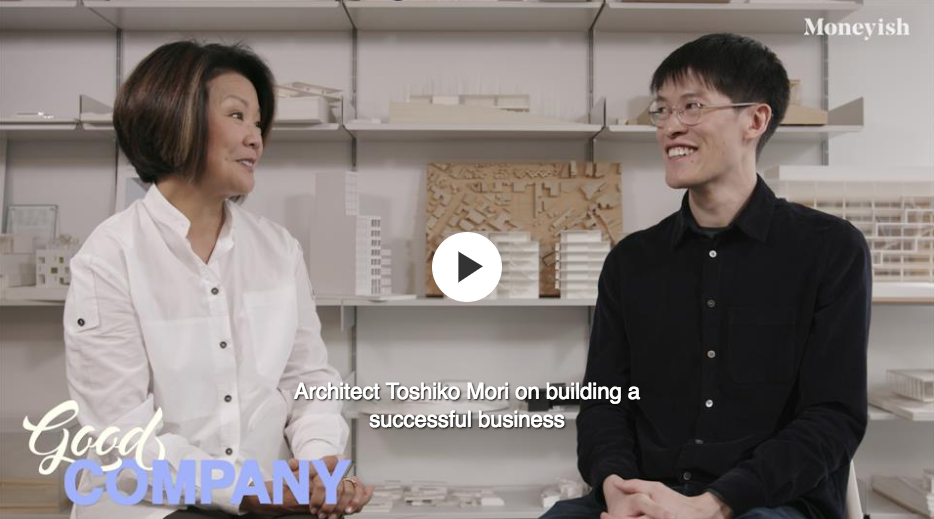Mentorship is at the heart of many early-career or aspiring architects’ and designers’ success stories, and serves as a cornerstone of the studio-based model of pedagogy: accomplished practitioners offer personalized training, feedback, and inspiration to their students, aiming to position them for productive practice through constant assessment and self-assessment.
News website Moneyish.com, an independent source within the Dow Jones Media Group, recently launched a mentorship-focused series entitled “Good Company,” sharing stories of mentorship successes in the business world and beyond. For a recent installment in the series, recent Harvard Graduate School of Design graduate Philip Poon (MArch ’18) offered Moneyish an interview with one of his GSD professors, Toshiko Mori, the Robert P. Hubbard Professor in the Practice of Architecture. Poon and Mori’s interview was recently published, offering a look at Mori’s New York-based practice and some of the lessons and wisdom she has shared with Poon and other students.
“She has a lot of experience dealing with young architects and seeing them develop,” Poon notes in the interview’s prelude. (Poon was inspired to pursue architecture in part by his father’s career as an architect; Poon joined his father’s firm, Peter Poon Architects, following his recent GSD graduation, working on projects including 151 Maiden Lane in New York.)
In their interview, Poon asks Mori how and why she set out to establish her own practice, Toshiko Mori Architect, as an early-career practitioner, and delves into some considerations obsessing the field today, including how architects respond to urgent issues like climate change, and what might be the other principal challenges architects face.
“The biggest challenge for us is, we’re responsible for building something static, whereas everything else is shifting constantly, including politics, the climate, the economy,” Mori says. “We ask how to be able to deliver something [today] which can also function in the future.”
“We are architects because we are idealists, and we have a vision of how society can improve, and how everybody can live happily together in peace,” Mori observes elsewhere in her conversation with Poon.
That ethos—architecture as a source of benefit, even healing—lies at the center of much of Mori’s work. Most recently, she penned a World Economic Forum piece about the need for and possibilities around smarter water management, for cities and rural communities alike.
“Agile water management calls upon cities to look at water more holistically,” she writes. “The agile city must both respond and anticipate its water needs. Key to this is the increasing integration of technology in urban water monitoring and planning.”
Hear more about Mori’s advice to Poon in their Moneyish feature.
